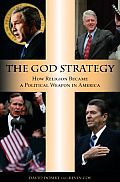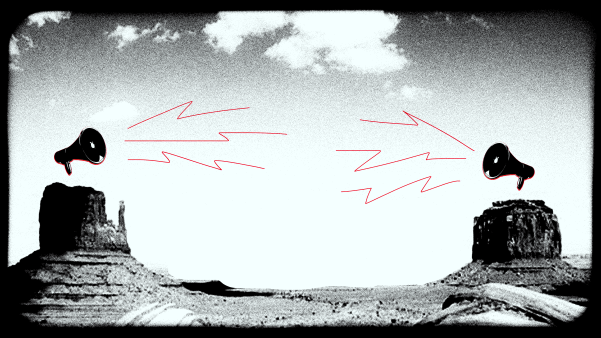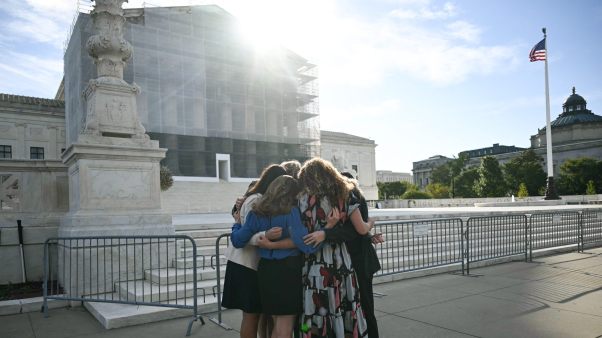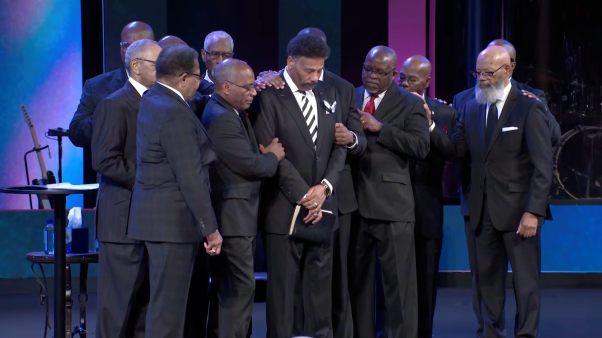
With the presidential campaign in full swing, politics has been a more frequent issue on Out of Ur, but that does not fully account for our interest in the subject. This time around religion is playing a much more prominent role in the debate. Leading candidates for the GOP include a Baptist minister and a Mormon. And on the Democratic side, all of the candidates are speaking much more openly about their faith in hopes of attracting disenfranchised evangelicals. The use of religion as a political weapon is the subject of a new book, The God Strategy. Brandon O’Brien, Leadership’s new assistant editor, gives us a brief review of the book, and wonders how church leaders can avoid being manipulated.
Given my age and childhood in the South, I cannot remember a time when being a good Christian did not require being a devout Republican. I accepted the situation as a matter of course until I realized that Republican politics has no corner on virtue. The Republican platform opposes abortion and defends family values. But the Democratic platform seems more sympathetic to the poor, orphans, and widows – as is God. As a result, until we vote on ballots that allow us to punch our position on issues, rather than select the name of a politician, I’m not sure whether to vote Republican or Democrat.
It may not be news to some of you, but I was encouraged to discover that my political confusion is representative of a historical confusion among Christians. According to David Domke and Kevin Coe, authors of The God Strategy (Oxford Press, 2008), it was only in the 1970s, after integration and Roe v. Wade, that Christians and Republicans began going steady. Since then, the authors argue, Republicans have had greater success than Democrats in employing the “God strategy” to curry the Christian vote.
The God strategy involves a
series of carefully crafted public communications employed by politicians to connect with religiously inclined voters?In combination, these approaches seek to entice both the many religious moderates who want leaders to be comfortable with faith, as well as devout Protestants and Catholics who desire a more intimate convergence of religion and politics.
Some politicians may use the God strategy because they are religious themselves. Regardless, the method is strategic and effective. Evangelicals are eager to endorse candidates who sound like one of them. The trouble is, we may indiscriminately endorse candidates – whether Republican or Democrat – who sound faithful enough, but are simply using Christian vocabulary as a smoke screen. If the conversation started by CT’s recent interview with Barack Obama is indicative of a trend, when conservatives feel they’re being misled, serious questions about issues are ignored and the debate devolves into an effort to determine whether a candidate is genuinely Christian.
In other words, we seem to either buy the God strategy and cozy up to a candidate or doubt a candidate’s sincerity and oppose him or her. In either case, we avoid the issues and are swayed by the candidate’s personality and appearance of authenticity.
Domke and Coe identify four strategies politicians use to win, or dupe, religious voters. These points are a basic summary of the God strategy:
1. Acting as political priests by speaking the language of the faithful
2. Fusing God and country by linking America with divine will
3. Embracing important religious symbols, practices, and rituals
4. Engaging in morality politics by trumpeting bellwether issues
Politicians can’t take all the credit for the effectiveness of the God strategy. Ministers encourage their congregations to view politicians as priests when they imply that having the right president or the right party in control of Congress will result in legislation that will deliver our nation from its sin. Preachers fuse God and country by confusing gospel liberty with political liberty and by conflating the American narrative with the biblical one. Worship committees mingle sacred and secular symbols by hanging the American flag behind the baptistery and introducing psalms to the state among praises to Jesus. And all of us are guilty of welcoming “morality politics” when we reduce the gospel to dos and don’ts. In short, church leaders work the soil in which the God strategy eventually bears fruit.
So where do we begin in 2008? How do we vote if the “God strategy” is simply that – a tactic to trick the undiscerning into electing a candidate they wouldn’t otherwise support? How does a younger generation of evangelicals vote the issues when it appears no one is giving us the truth? What advice do we offer our congregations?
Personally, I wouldn’t be disappointed if the presidential campaign of 2008 undermined our hope in the political system. I’m not promoting cynicism; rather, just a simple reminder that while some trust in chariots, we trust in the name of Jesus our Lord.









